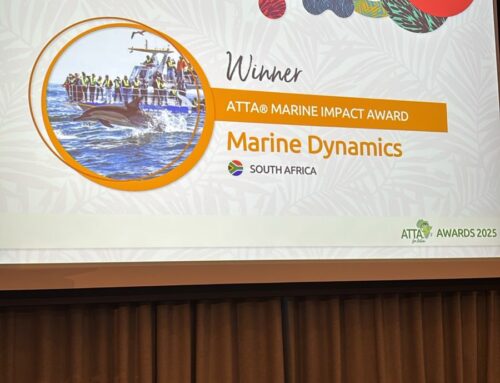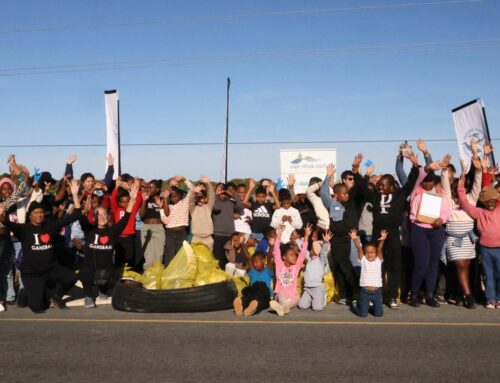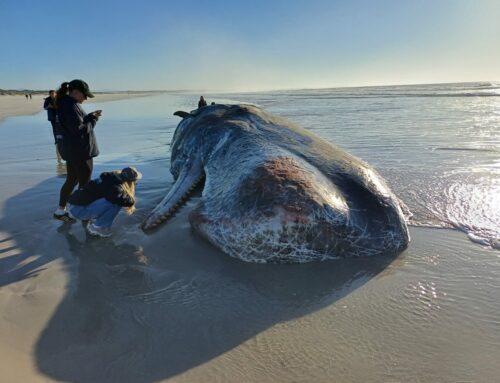Wetlands are land regions that are continuously or seasonally saturated with water, and they include ecosystems such as estuaries, marshes, swamps, bogs, and fens.
World Wetlands Day is observed every year on February 2nd. It also marks the anniversary of the Convention on Wetlands, which was adopted as an international treaty in 1971. The purpose of the day is to raise public awareness of the value of wetlands and the various measures to stop their rapid degradation and destruction.
Wetlands contribute significantly and significantly to preserving the ecological equilibrium. Wetlands are home to around 40% of all plant and animal species, where they reproduce and thrive. Wetland destruction can have catastrophic effects on the ecology. Countless plant and animal species have wetland areas as their natural homes. Wetlands come in five main categories. Marine, estuarine, lacustrine, riverine, and palustrine are the different types. Wetlands are among the most productive habitats; thus, they must be preserved.
Why do we celebrate World Wetland Day?
Wetlands make up a substantial portion of our ecology. They are regarded as biodiversity hotspots because they serve as the home to a wide range of aquatic plants and wildlife. Numerous migratory bird species and birds call them home. Wetlands destruction would have a significant negative effect on the ecology, either directly or indirectly.
Theme of World Wetlands Day this Year 2023
‘It’s Time for Wetlands Restoration’ is the theme for this year’s World Wetlands Day. The subject emphasizes how crucial it is to give wetland restoration priority. To ensure that wetland restoration measures will be done in the future to conserve these important ecosystems, the Dyer Island Conservation Trust Environmental Education Programme known as DEEP in partnership with the Marine Dynamics Academy participated in the monitoring of the Uilkraalsmond estuary to make sure the salinity, temperature and oxygen levels are all perfect at all times. This educational excursion was led by our head of science Ralph Watson. The Dyer Island Conservation Trust monitors the Uilkraalsmond system on a weekly basis with the data feeding into the overall management of the Estuary.
This is what Pinkey Ngewu our Trust educator has to say about this day: “Numerous species call the wetlands home, and if wetlands disappear, they would be left without a place to live. The survival of the planet rests on the preservation of the wetlands. Wetlands are vital ecosystems that play various important roles in people’s lives and the environment, including flood control, habitat for diverse plant and animal species, water purification, and extending support for local communities livelihoods. Degradation and loss of wetlands will reduce their potential to support biodiversity.
The Dyer Island Conservation Trust’s Environmental Education Programme, known as DEEP, works with dedicated groups of young learners from Masakhane Primary School in Gansbaai, Western Cape, South Africa. The programme runs for three years to monitor and evaluate the impact and growth of each learner and aims to expose these young learners to the field of marine science and conservation and serve as a forerunner for future skills training. Graduated learners remain in a Marine Club to support their journey through high school and they mentor the younger groups. https://dict.org.za/dict-projects/education/
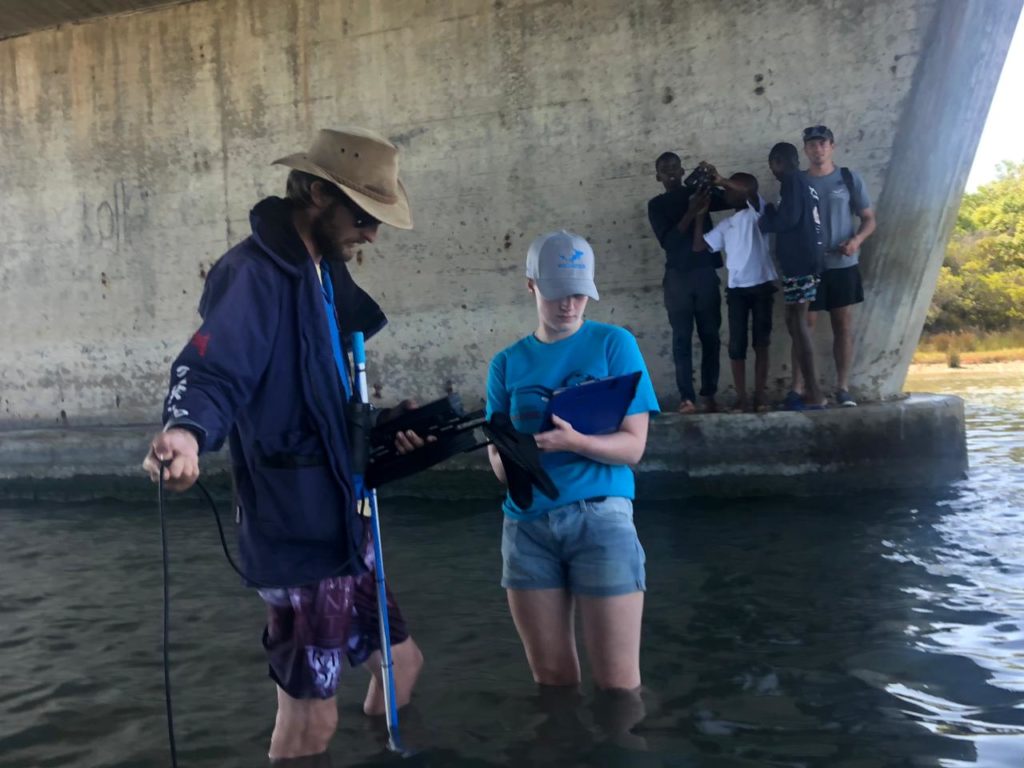
Ralph Watson and the Marine Dynamics Academy volunteers measuring the temperature of the water
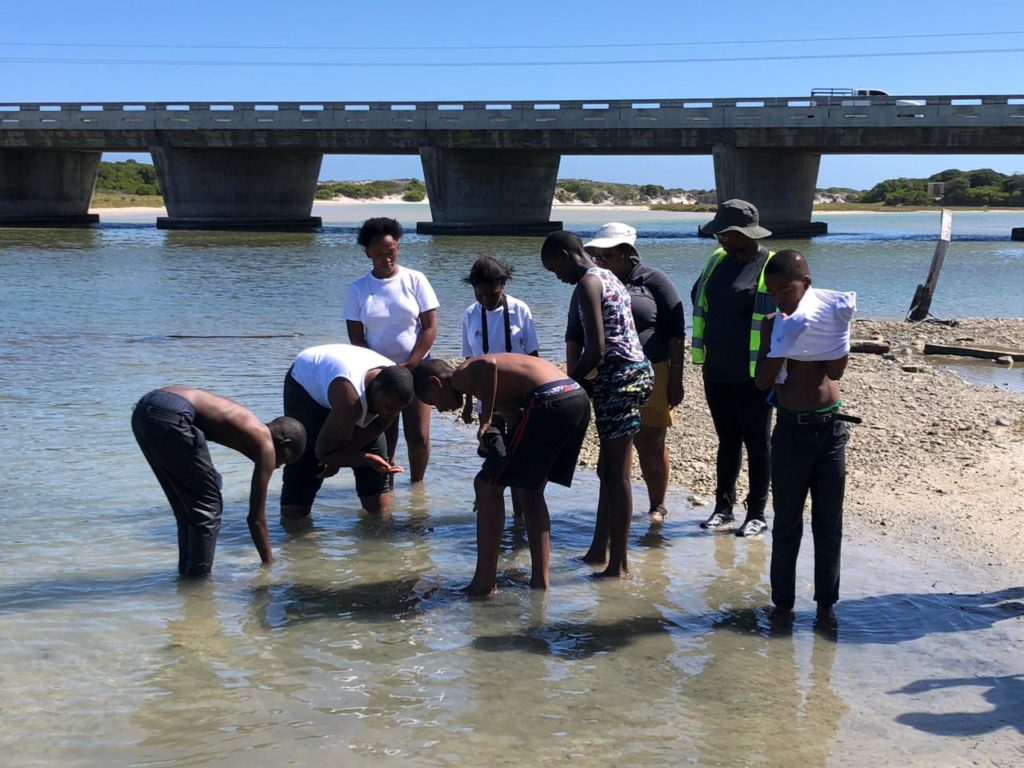
DEEP learners looking at the hermit crabs
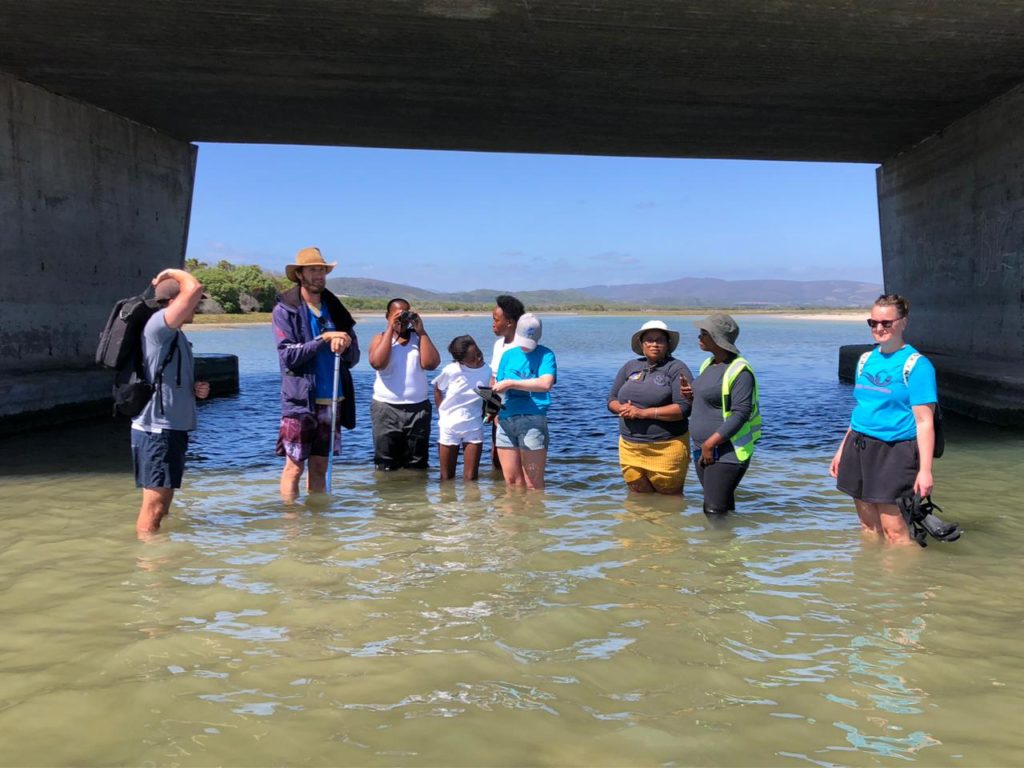
Bird counting at one of the estuary site
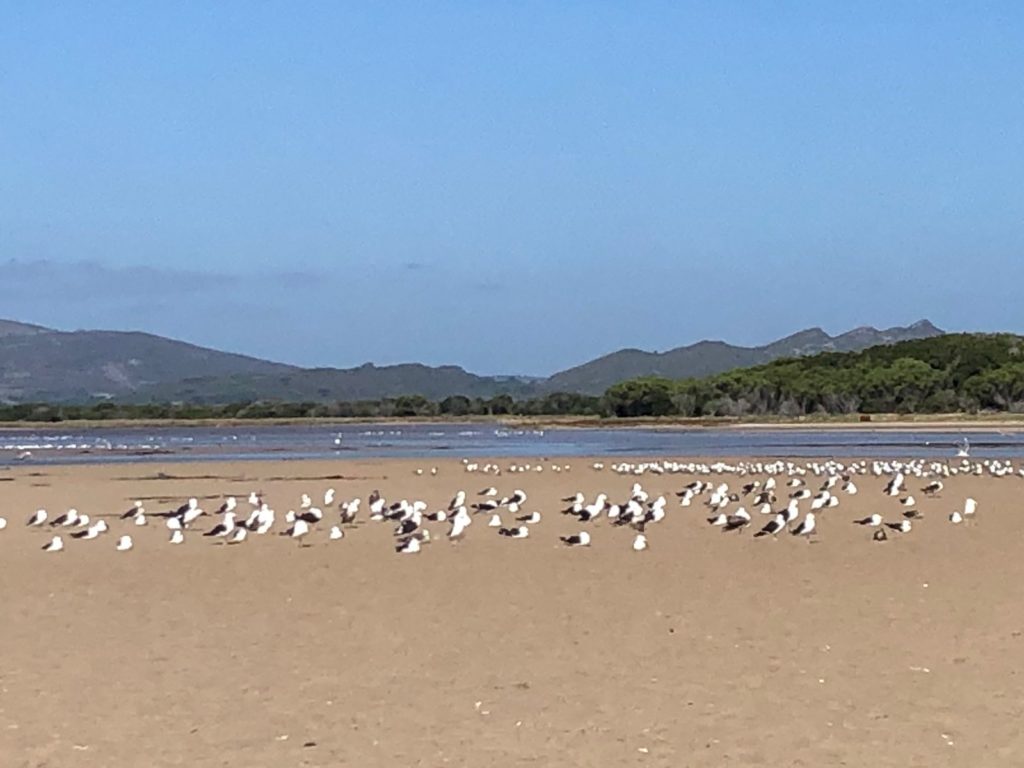
Different species of birds
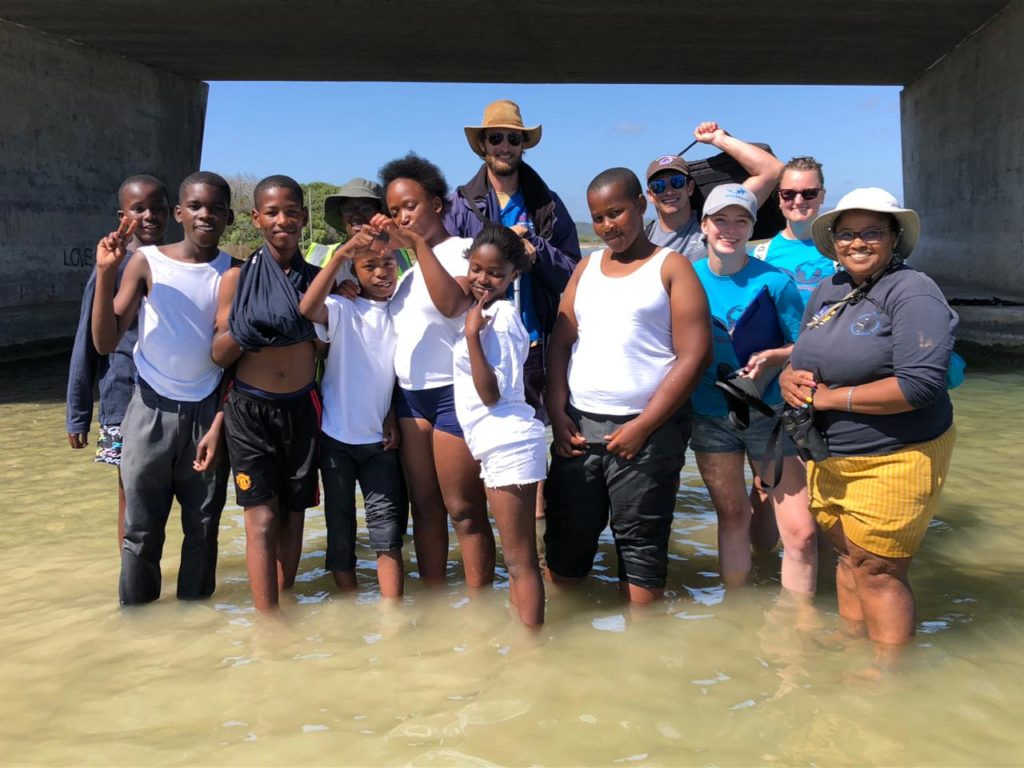
Group picture

